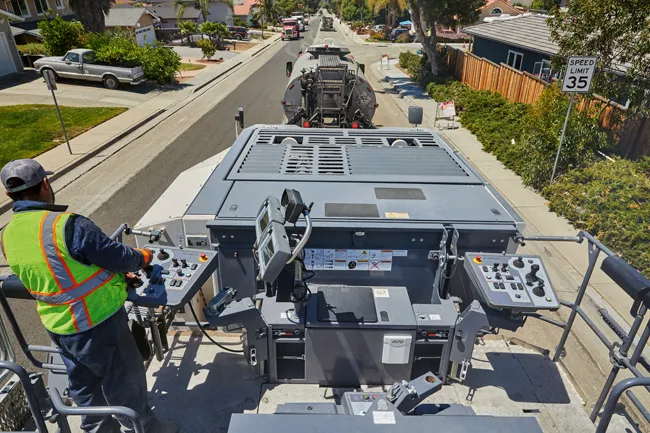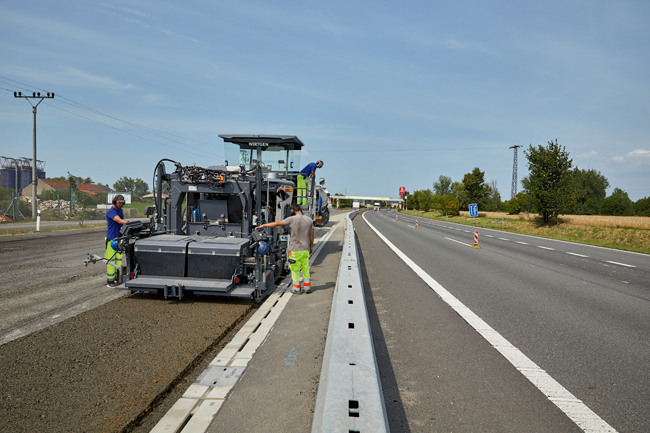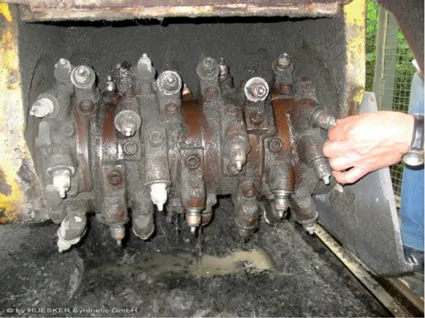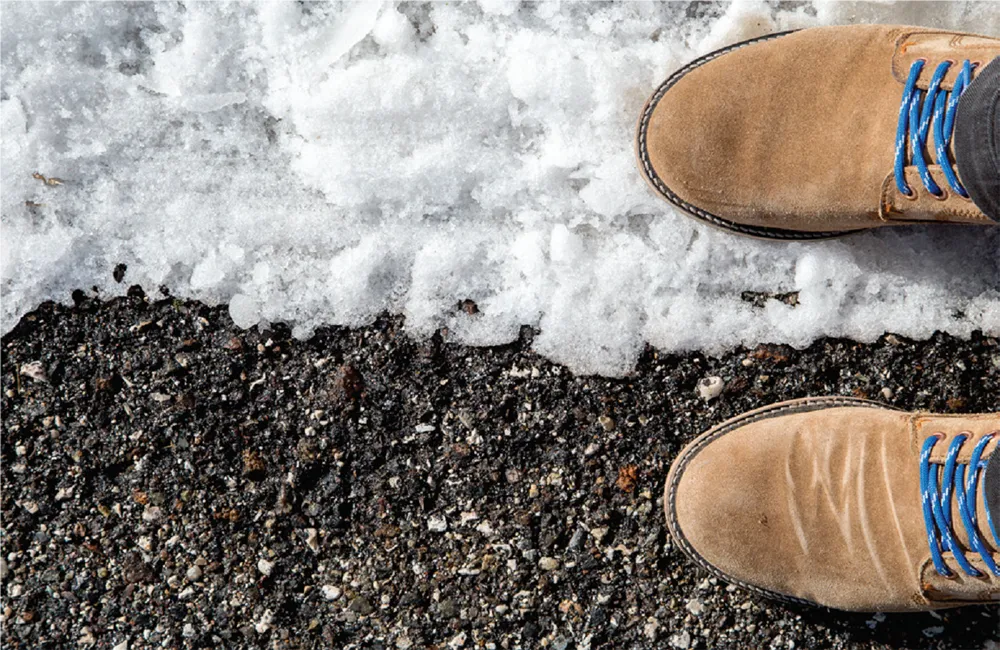
The cold recycling process recycles the surface and base course material and demand for this solution will continue to grow in the future. Using the in-place cold recycling process, the asphalt surface is removed either in full or in layers, depending on the level of damage. This is carried out by a recycling train operating across the entire width of the pavement in a single pass. The milled surface material is mixed with binding agents on site, and then paved again immediately.
The new W 380 CRi from
Wirtgen’s tracked recyclers use the down-cut process when recycling, having developed this method, in which the milling and mixing rotor rotates in sync, many years ago. This technique is said to make it possible to vary the particle size of the material being processed, especially in the case of fragile, thin, old asphalt roads.
Roads rehabilitated using the cold recycling process also have to meet the same durability requirements as roads designed and built using conventional methods. With the development of its own laboratory equipment, Wirtgen says it can ensure that rehabilitation measures will be cost-effective and sustainable. As a result, the recycler not only makes it possible to define the ideal composition of the RAP, but also to directly analyse its quality and properties using samples in triaxial and splitting tensile strength tests. The quality of the foamed bitumen can also be defined in the materials laboratory before starting the rehabilitation project.
Cold recycling, particularly with foamed bitumen, is becoming increasingly popular with road authorities and construction companies. In this process, the foamed bitumen is processed in-place with the existing building material. The newly produced bituminous mix is known as bitumen-stabilised material (BSM). After final compaction, it shows a long-term and extremely high load-bearing capacity. From a long-term perspective, BSM allows selective adhesion within the cold recycling layer and prevents cracking. Permanent layers prepared this way form a stable foundation for the final asphalt layer with reduced thickness.

Another advantage of the cold recycling process is the potential for energy savings during material processing. The raw materials do not have to be dried or heated, which means that 10-12litres of fuel can be saved/tonne compared to conventional rehabilitation methods. By reusing the surface course, the need to transport building materials can be reduced by up to 90%. At the same time, companies can cut resource consumption by 90% and eliminate the need to dispose of materials. This results in significantly reduced fuel consumption and lower CO2 emissions. Most importantly, the cold recycling design makes it possible to reduce the use of binders by up to 50%, a significant cost saving.
As the RAP is immediately recycled and the associated logistics are extremely lean, in-place cold recycling means that projects can be completed much quicker than with conventional rehabilitation methods.
The entire series of machines required for the rehabilitation process can fit in the width of just one lane. Meanwhile the recycled pavement can be used after compaction has been completed.
In addition to the Stage 5/Tier 4 Final W 380 CRi and Tier 2 W 380 CR models, the new generation of Wirtgen recyclers also includes the Stage 5/Tier 4 Final W 240 CRi and Tier 2 W 240 CR. The W 240 CRi and W 240 CR recyclers can be equipped with integrated








